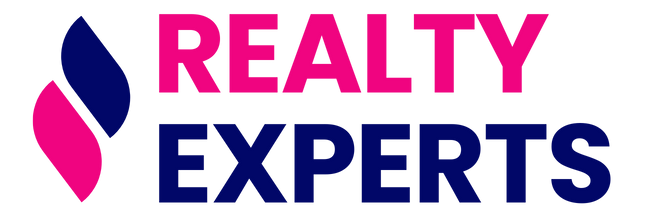Accelerate Your Professional Growth: A Comprehensive Guide to Career Development in Supply Chain Management

Photo by EqualStock on Unsplash
Introduction: Why Choose Supply Chain Management for Career Growth?
Supply chain management has emerged as a cornerstone of global commerce, offering professionals the chance to work in a dynamic, high-impact environment. The field spans logistics, procurement, inventory, quality assurance, transportation, and more. As businesses face increasing complexity and globalization, the need for skilled supply chain professionals continues to grow. This guide provides actionable strategies, real-world examples, and step-by-step pathways to help you access, develop, and advance your career in supply chain management.
Understanding Career Paths in Supply Chain Management
Supply chain management offers a wide array of career opportunities, each with its own unique responsibilities and advancement prospects. Typical roles include:
- Production Planner : Develops production schedules, manages inventory, and coordinates with departments to ensure timely delivery.
- Supply Chain Analyst : Analyzes data to identify inefficiencies, recommends improvements, and supports decision-making.
- Procurement Manager : Manages supplier relationships, negotiates contracts, and implements sourcing strategies.
- Logistics Coordinator : Oversees transportation, tracks deliveries, and ensures compliance with regulations.
- Supply Chain Manager : Leads end-to-end operations, optimizes logistics, and drives continuous improvement.
Each career path offers growth potential, from entry-level positions to senior leadership roles. For a deeper dive into specific job titles, required skills, and salary information, you can consult resources like SupplyChainGuide.org, which offers comprehensive guides on various positions and how to pursue them [1] .
Essential Skills and Qualifications for Advancement
To thrive and advance in supply chain management, professionals must continually develop a robust skill set. Key skills include:
- Analytical Abilities : Ability to interpret data, forecast demand, and identify process bottlenecks.
- Project Management : Coordinating teams and resources to achieve business objectives efficiently.
- Communication : Effectively collaborating with stakeholders across departments and geographic locations.
- Technical Proficiency : Familiarity with enterprise resource planning (ERP) software, data analytics tools, and automation technologies.
- Problem-Solving : Addressing disruptions and finding innovative solutions to operational challenges.
Continuous learning through online courses, webinars, and industry events is vital. Platforms like Coursera and LinkedIn Learning offer supply chain-focused courses that can help you acquire these skills. Consider searching for “online supply chain management courses” or visiting your preferred e-learning platform to find relevant programs.
Education and Certification: Building Your Foundation
While some supply chain roles are accessible with a high school diploma and experience, many employers prefer candidates with a relevant degree. Common educational pathways include:
- Bachelor’s degrees in Supply Chain Management, Logistics, Business, or related fields
- Associate degrees or diplomas for entry-level positions
- Master’s degrees or MBAs for advanced leadership roles
Professional certifications can significantly enhance your credibility and career prospects. Reputable organizations such as the International Supply Chain Education Alliance (ISCEA) and the Association for Supply Chain Management (ASCM) offer globally recognized certifications. For example, the ISCEA Certified Supply Chain Analyst credential can demonstrate your expertise for analyst and management roles [2] . You can find more details on certification programs by visiting the official websites of these organizations and searching for their supply chain certification offerings.
Networking and Mentoring: Expanding Your Industry Connections
Building a professional network is crucial in supply chain management. Consider joining industry associations, attending conferences, and participating in online forums. These activities can help you:
- Learn from experienced professionals
- Stay updated on industry trends and job openings
- Find mentors who can provide guidance and support
Mentorship is especially valuable for career development. Many professional associations and alumni networks offer mentorship programs. If you’re unsure where to start, search for “supply chain professional associations” or reach out to your university’s career services department for recommendations.
Gaining Practical Experience: Internships and Entry-Level Opportunities
Practical experience is essential for breaking into and advancing within the supply chain field. Many companies offer internships, co-op programs, and entry-level positions that allow you to build hands-on skills. To find these opportunities:

Photo by EqualStock on Unsplash
- Check the career sections of major logistics, manufacturing, and retail companies
- Use job boards such as Indeed, LinkedIn, and Glassdoor, filtering for “supply chain internships” or “entry-level supply chain” positions
- Contact your university or college career center, as many have partnerships with local employers
Internships and early-career roles provide exposure to the full spectrum of supply chain functions, from procurement to distribution. This experience is often essential for qualifying for analyst and management positions [3] .
Staying Current: Trends and Continuing Education
Supply chain management is constantly evolving due to technological advancements, regulatory changes, and global events. Staying current is vital for career advancement. Recommended steps include:
- Reading industry publications and reputable news sources
- Participating in webinars and training sessions
- Attending conferences and trade shows
Many organizations and industry groups provide updates on emerging technologies like artificial intelligence, blockchain, and automation. To stay informed, follow leading supply chain publications and search for “latest supply chain management trends.” For upcoming events, check official association websites or event aggregators in the logistics and supply chain sectors.
Alternative Pathways and Specializations
The supply chain field is broad, allowing professionals to specialize in areas such as demand planning, inventory control, procurement, or transportation management. Specialization can lead to higher salaries and increased job security. For example, a focus on data analytics or risk management can position you for roles in supply chain strategy or consulting [4] . To explore specializations, use search terms like “supply chain specializations” or “careers in logistics analytics.”
Accessing Career Development Resources
There are many resources available to help advance your supply chain career. To access these:
- Explore job boards such as Indeed or LinkedIn by searching “supply chain jobs” in your region.
- Visit official professional association websites for career centers and job postings.
- Seek out academic institutions with dedicated supply chain programs. Use terms like “supply chain degree programs” to find accredited schools.
- Search for government workforce development programs in your area that may offer grants, training, or job placement support in logistics and supply chain management.
For step-by-step access:
- Identify your career stage and goals (e.g., entry-level, management, specialization).
- Research educational and certification requirements using reputable sources and official organization websites.
- Leverage job boards and networking channels to identify opportunities.
- Engage in continuous learning through online courses, webinars, and professional events.
- Regularly evaluate your skills and seek feedback from mentors or supervisors to guide your development plan.
Potential Challenges and Solutions
Common challenges in supply chain career development include rapid technological change, competition for high-demand roles, and economic fluctuations. Solutions include:
- Staying agile by updating your technical skills and industry knowledge regularly.
- Building a diverse skill set to adapt to shifting market demands.
- Seeking mentorship and professional guidance to navigate career transitions.
Remember, persistence and continuous improvement are key to overcoming obstacles and achieving long-term success in this dynamic field.
Summary and Key Takeaways
Career development in supply chain management offers robust opportunities for growth, impact, and long-term stability. By building relevant skills, acquiring education and certification, networking strategically, and staying informed on industry trends, you can unlock rewarding roles across logistics, procurement, analytics, and beyond. Take proactive steps to identify and access development resources, and remain adaptable as the field continues to evolve. For more insights, guidance, and job opportunities, consult verified career resources and professional associations in the supply chain industry.
References
- [1] SupplyChainGuide.org (2025). Learn About Supply Chain Education and Careers. In-depth guides and resources for supply chain and logistics careers.
- [2] Indeed (2024). A Guide to Supply Chain Career Paths. Career development strategies, skills, and advancement tips.
- [3] 4 Corner Resources (2024). The Ultimate Supply Chain Analyst Career Guide. Detailed breakdown of supply chain analyst roles and progression.
- [4] Matsh (2024). Exploring Supply Chain as a Career Path. Job prospects, required skills, and real-world examples.
MORE FROM realtyexperts.ai













